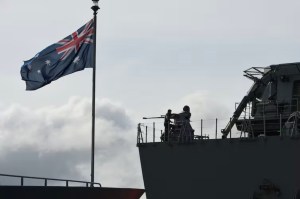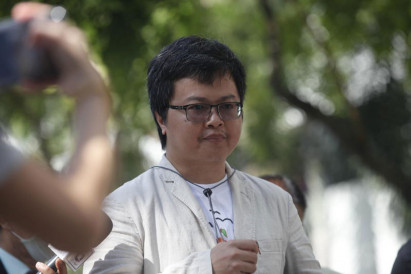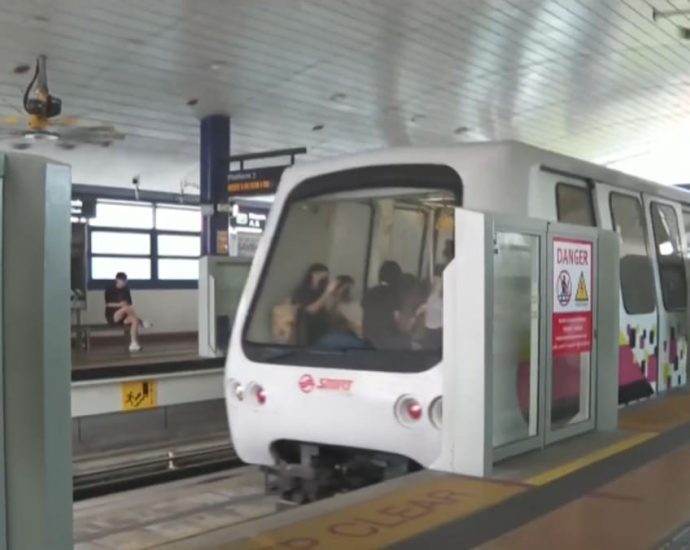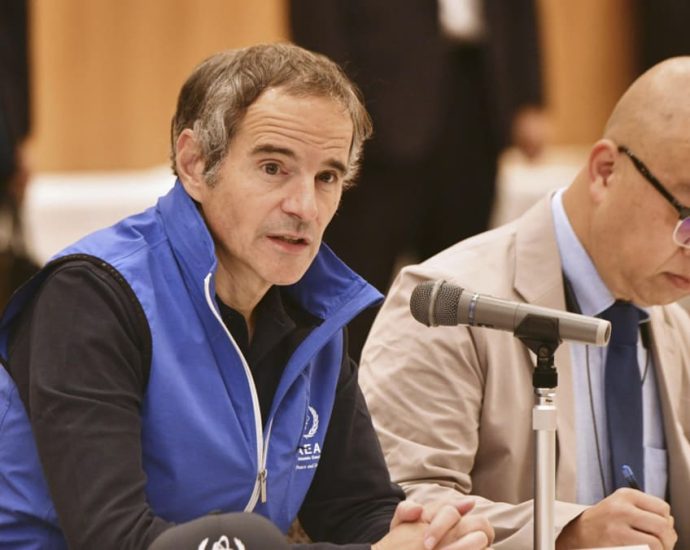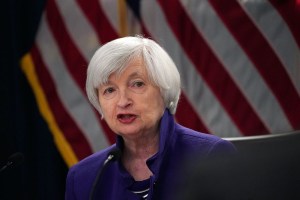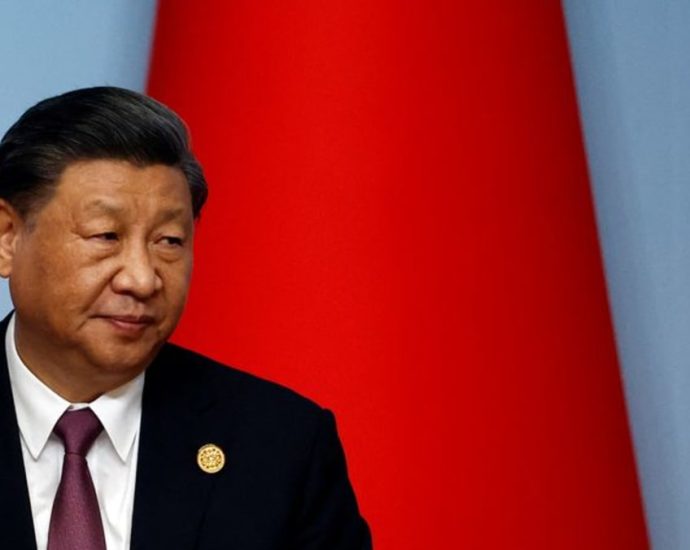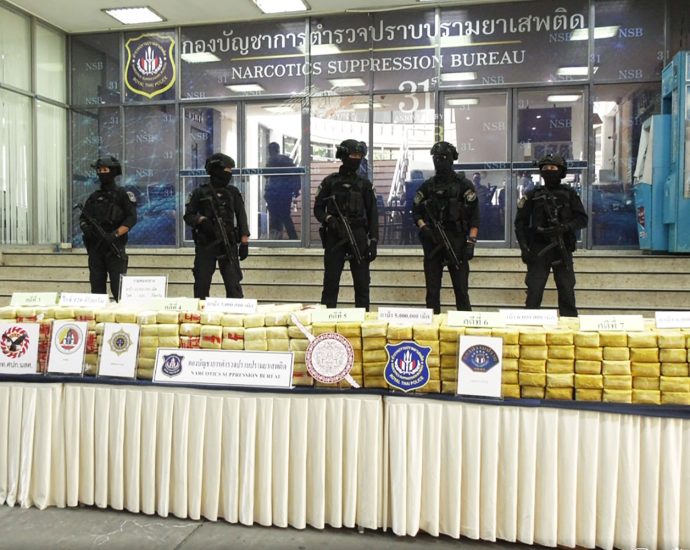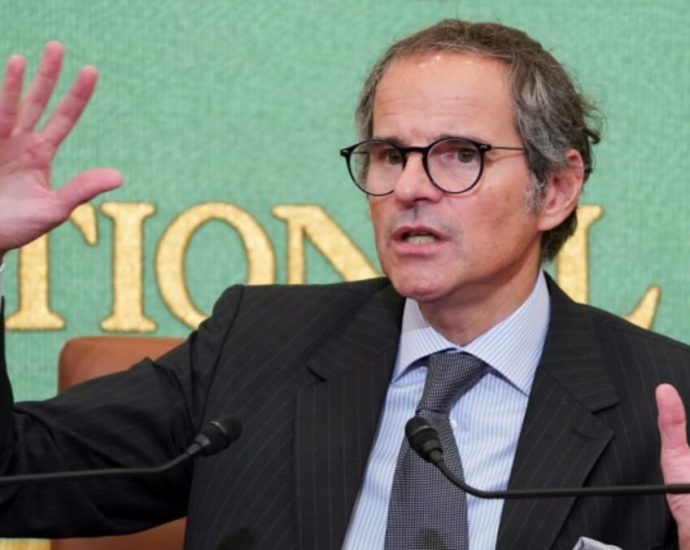Questioning Australiaâs AUKUS spending rationale
Australia’s purchase of nuclear submarines under the AUKUS agreement has been framed in terms of the jobs that would be created in submarine construction, rather than the security benefits that would flow to Australia from their deployment some decades hence.
This is a longstanding tradition. Because defense is an essential function of any national government, military spending has rarely — if ever — been subject to benefit-cost analysis.
And in the absence of any specific rationale for particular defense expenditure projects, such as a current or imminent war, a variety of economic benefits have been cited as reasons for approving those projects.
Decision-making with respect to military expenditure should begin with a single central objective, that of national self-defense against invasion, with other possible uses of military force being regarded as peripheral.
In any such assessment, expenditure that significantly reduces the existential risk of invasion, air attack or naval blockade can be regarded as essential.
Any other use of military power needs to be assessed in terms of opportunity costs and benefits. That is, military spending should be compared to alternative public and private expenditures — ideally those with comparable benefits.
For example, contributions to Ukraine’s resistance to the Russian invasion could be compared to civilian forms of overseas aid. Such an assessment could include both direct benefits, such as protecting civilians from war and hunger, as well as global public goods, including upholding international law and reducing the instability associated with mass poverty.
Various claims are frequently made to present a strong case for military expenditure, but they are rarely subject to careful scrutiny. The Australian government’s assertion that the AUKUS nuclear submarine purchases are needed to protect vital international shipping routes, such as to Singapore or through the South China Sea, is one example of such a claim.

Generally, such shipping routes are convenient rather than vital. Except for trade with China itself, all shipping that currently flows through the South China Sea could take alternative roundabout routes if necessary. In the worst case, shipping from Europe to East and Southeast Asia could travel south of Australia.
This is not merely hypothetical. The Suez Canal was long regarded as a vital route, but when it was blocked shipping had to go around the Cape of Good Hope. The resulting cost increases were large relative to the shorter route, but tiny in relation to the national income of the countries involved in trade. Similar points can be made with even more force about problems such as piracy.
By contrast, a full-scale naval blockade — of the kind seen during the world wars aimed at starving the target nation into submission — does represent an existential risk. But the risk of such a blockade for Australia is negligible except in the event of a new world war, which would probably involve the use of nuclear weapons, against which no current defense is feasible.
Claims about the usefulness of military power to seize resources are obsolete, as observed by Norman Angell in his 1911 book, “The Great Illusion.” Though Angell’s arguments were ignored, the First World War proved his point in disastrous fashion for all of the major participants. A century of subsequent experience has yielded ample confirmation that war never yields net economic benefits.
This is particularly true of the oil, gas and fishery resources of the South China Sea, which have been the subject of disputes for decades. Despite regular saber-rattling and occasional low-level conflict, the actual conduct of the countries in the region reflects the fact that these resources are not worth fighting over.
The crucial issues for Australia arise in relation to expeditionary forces, typically deployed as part of operations undertaken by the United States. Before considering the possible benefits of such deployment, it is worth observing that outright failure – as seen in Afghanistan and Vietnam – has been the most common outcome and that successes, such as in Iraq and Syria, have been equivocal at best.
The number of expeditionary operations is large enough to consider benefits and costs. To evaluate the benefits, Australia’s relationships with regimes where expeditionary forces were defeated can be compared with those where forces were “successful” in military terms. It is hard to see a difference sufficient to justify the loss of lives and money.

On AUKUS, approaches to public investment, whether military or civil, based on counts of “jobs created” are rarely satisfactory. In most cases, the workers filling these jobs are diverted from other, higher-value activities, with no effect on the level of employment and unemployment.
In this context, it is perhaps churlish to observe that the estimated cost of AU$18 million per job created by AUKUS is massively more than in a typical domestic boondoggle.
The real question yet to be answered about the AUKUS deal is how, if at all, the submarines that Australia is buying will protect us against the fortunately remote threat of foreign conquest.
John Quiggin is Australian Laureate Fellow at the School of Economics at the University of Queensland.
This article was originally published by East Asia Forum and is republished under a Creative Commons license.
MFP urged not to back down on S112
Activist Anon Nampa says coalition parties must remain true to ‘people’s agenda’

The Move Forward Party (MFP) must not back down on its push to amend the lese-majeste law, reform the armed forces and pardon those indicted for expressing political opinions, otherwise it will lose mass support, says human rights lawyer Anon Nampa.
Mr Anon, a member of Thai Lawyers for Human Rights (TLHR) and leader of the Ratsadon pro-democracy movement, made the comments on Friday in an interview on the Inside Thailand television programme on Channel 9.
He was responding to questions about a Facebook post that he directed at the MFP.
He said he wanted to send a message to Move Forward, Pheu Thai and the six other parties forming a new government that although politics involves a lot of bargaining, the people’s agenda should not be abandoned.
Mr Anon said the struggle by people of the “new generation” over the past three years is now moving towards being carried out in parliament instead of on the streets.
Since the protesters had high expectations about the result of the May 14 election, the coalition-leading MFP should not let them down, he said. If they fail to get what they wanted, they would certainly walk away from the party, he added.
“This is not a threat, but a friendly warning,” said Mr Anon. “Backing down on demands made by 14 million voters in exchange for the post of prime minister would not do any good to the democracy side.”
Parliament will meet on Thursday to vote for the next prime minister. Move Forward leader Pita Limjaroenrat has 312 votes from the eight-party coalition but needs another 64 votes to win the job. Most of those votes will need to come from the unelected Senate but the support of its members appears limited. Many reportedly say the party’s plan to amend Section 112 of the Criminal Code, the lese-majeste law, is a major concern.
“Concerning the proposed amendment to Section 112, the MFP should at least table it for deliberation in the House of Representatives,” Mr Anon said. “Whether it gets passed into law rests with parliament. There are still many steps to be taken to get the law amended.
“The best thing we should do now is to not allow the people to again risk their lives or be prosecuted under Section 112. We voted for the MFP and Pheu Thai and managed to push some of our friends in the Ratsadon movement into parliament for this purpose.”
The activist lawyer said the MFP should not back down on its demands in exchange for the post of prime minister.
Both the MFP and Pheu Thai must maintain the momentum of democracy, he said. They must not shake hands with the other side that is trying to perpetuate the old power, including the Bhumjaithai and Democrat parties. Doing so would be a disaster for the democratic side, said Mr Anon.
All eight parties in the new government, he said, must join hands to reform the armed forces, amend Section 112 and push for pardons for those prosecuted for expressing political opinions.
“They must fight for these in parliament, regardless of whether they are successful or not,” he said. “People outside parliament are ready to show support, by means of holding rallies and other activities.”
Asked whether any activities are planned when parliament convenes on Thursday, Mr Anon said the matter had been discussed on social media but no venue had been chosen.
He said he believed any rally would be organic and without leaders as before.
According to data from TLHR to June 30 this year, 1,916 people have been prosecuted for political participation and expression since the beginning of the Free Youth protests in July 2020. At least 252 are facing lese-majeste charges under Section 112 and 130 have been charged with sedition under Section 116.
Bukit Panjang LRT rolls out new safety feature that detects track intrusions using video analytics
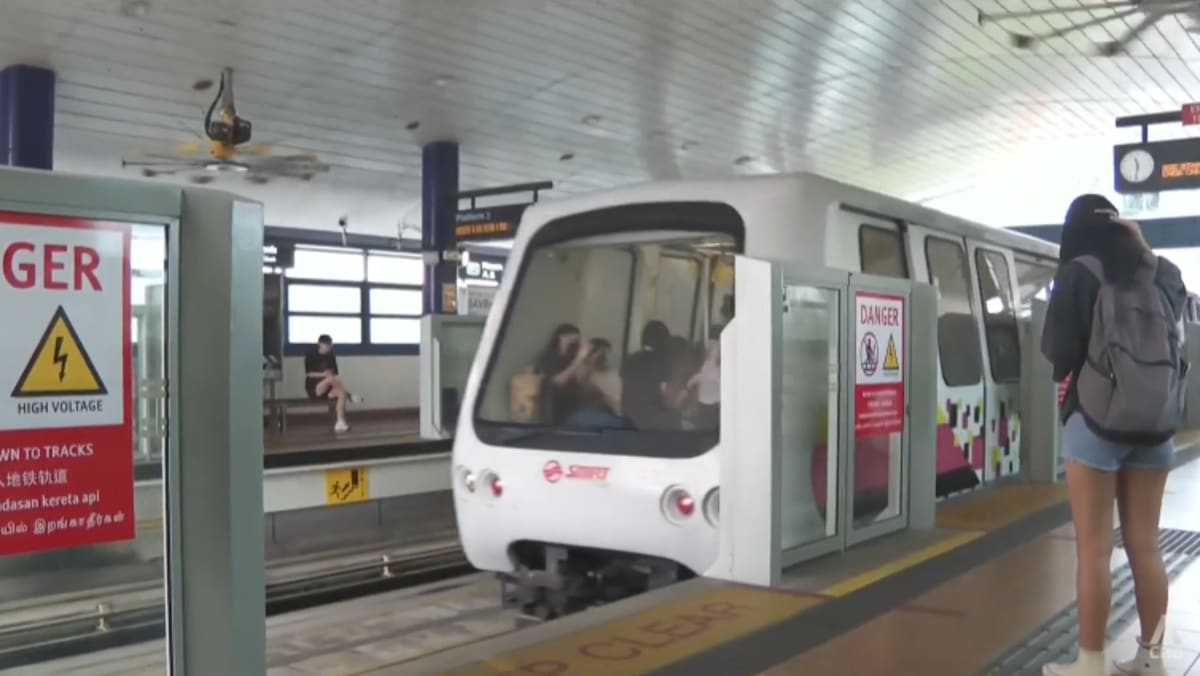
SBS Transit, which runs the other LRT networks at Sengkang and Punggol, told CNA that it is trialling a similar system for the two lines.
Like iSafe, SBS Transit’s video analytics system known as VAnGuard can also detect passengers and foreign objects on both the tracks and the platform by analysing surveillance footage from the cameras in the stations.
“The system can also detect wheelchairs and unattended objects at the LRT platform, enabling us to provide passenger assistance or take security action if needed,” said the transport operator’s spokesperson Grace Wu.
Trials started more than three years ago but was put on hold due to the COVID-19 pandemic. The company is currently stress-testing the system at the Sengkang Town Centre Station, which was selected for its high crowd density.
The feature is expected to roll out across all 28 stations later this year.Continue Reading
Uzbek man held in connection with Pattaya sex trade
Suspect lured compatriots with promises of restaurant jobs but then forced them into prostitution

An Uzbek man has been arrested at Suvarnabhumi airport on charges of luring his compatriots into the flesh trade in Pattaya while two Uzbek women involved managed to flee, according to police.
Officers from the Anti-Trafficking in Persons Division (ATPO) apprehended the 32-year-old suspect at the airport on Thursday as he was about to flee the country, Pol Maj Gen Sarut Kwaengsopha, the ATPD commander, said on Friday.
The suspect, identified only as Navruzbek, was wanted on a warrant issued by the Criminal Court on charges of colluding in human trafficking by procuring women into the flesh trade.
According to police, Mr Navruzek and two Uzbek women had lured their compatriots into forced prostitution in Thailand by claiming that they would take them to work as assistant cooks at a restaurant in Pattaya. Many young women had fallen victim to the gang.
When they arrived in Thailand, the women ended up being forced into providing sex services to customers along a beach near Pattaya’s popular Walking Street, said Pol Col Pattanapong Sriphinphor, superintendent of ATPO Sub-division 2.

Anti-Trafficking in Persons Division police discuss the workings of an Uzbek human trafficking gang at a press conference on Friday. (Photo: Wassayos Ngamkham)
The suspect and his associates also trapped the women in debt bondage, telling them that they owed US$5,000 for travelling expenses and visa arrangements.
“Any victims who disobeyed the gang would be physically assaulted, illegally detained or denied food,” said Pol Col Pattanapong.
“Most victims had no choice and had to provide sex services. Each was forced to sell sex at least four times a day from 6pm to 6am. Those who did not meet the target would be punished by not being given food. The victims were given one meal a day.
“If the victims asked for their wages or wanted to return to their home country, the gang rejected by claiming that they had to pay back their debts first.”
According to the police investigation, the suspects asked their victims to work in Pattaya first before taking them to Bahrain, where they could earn more money.
One woman mmanaged to flee to seek help from the NightLight Foundation and Operation Underground Railroad, an anti-human trafficking organisation from the United States. She was later taken to file a complaint with the ATPO police.
Investigators subsequently issued warrants for the arrest of Mr Navruzbek and two Uzbek women — the alleged gang leader Zumrat, 42, and procurer Diloromkon, 22.
Ms Zumrat and Ms Diloromkon managed to take 17 victims with them when they fled the country, said Pol Col Pattanapong. The Uzbek man was about to flee, but was caught at the airport.
During questioning, he denied all charges, but admitted to having known Ms Zumrat. He was being held in police custody for legal action.
Hong Kong jails first person under cannabis compound CBD ban
A magistrate on Friday sentenced her to two months’ imprisonment for two counts of drug possession and one count related to the syringes. Hong Kong customs said the jail term “reflects the seriousness of the offence and serves as a clear warning to the general public”. Anyone who possesses orContinue Reading
IAEA chief Grossi hints at discord among Fukushima report experts
Grossi said the IAEA’s report did not amount to an endorsement of the plan and that Tokyo must take the final decision to release the water due to start later this summer. “We do not endorse the plan or recommend this to be done. We say this plan is consistentContinue Reading
China may face a dreaded âbalance sheet recessionâ
As Janet Yellen kicks China’s economic tires in Beijing this week, she may be surprised by how often the attention is veering toward neighboring Japan.
It just so happens that Yellen’s first China trip as US Treasury secretary coincides with intense debate about Asia’s biggest economy experiencing a Japan-like “balance sheet recession,” one that, if true, will be devilishly hard to reverse.
The reference here is to economist Richard Koo’s oft-cited observation about why Japan plunged into deflation and stagnation in the 1990s. Specifically, this is when economic insecurity prods a critical mass of households and companies to prioritize boosting savings and paying down debt over consuming and investing.
Unlike a formal recession, where gross domestic product (GDP) contracts, the balance sheet variety condemns an economy to underperform for several years.
It’s clear that as 2023 unfolds, “investors are concerned that China may have entered a liquidity trap or is experiencing a balance sheet recession,” says economist Carlos Casanova at Union Bancaire Privée, with the caveat that for now “these fears might be overstated.”
Yet the trouble with Japan-like economic funks is how souring sentiment can take on a life of its own. Herein lies the greater risk for Chinese leader Xi Jinping and Premier Li Qiang.
“Chinese policymakers are going about tackling the different factors underpinning weak sentiment,” Casanova explains. “Given the scattered nature of this support, it may take time for upside pressures on domestic asset prices to build and the Chinese yuan to stabilize.”
Koo, too, thinks China “is entering a balance-sheet recession,” partly because “people are no longer borrowing money” due to worries about the growth outlook and stability of asset markets. As households and companies focus on reducing debt, China’s growth can’t return to pre-Covid levels, he worries.
“I hope Chinese policymakers understand and respond to these challenges, because this might be the last chance for China to reach the living standards of the First World,” Koo explains.

Economist Ting Lu at Nomura Holdings worries that “China’s real estate sector is now starting to look somewhat similar to Japan in the 1990s.” As of May, for example, contract sales among the mainland’s 100 top developers were down roughly 57% versus pre-Covid-19 levels in 2019.
Though Japan’s plunge into deflation had several causes, cratering land prices — and the high degree of exposure to those prices among the nation’s biggest banks — was a key catalyst. The overhang set in motion the bad loan crisis that was core to Japan’s multi-decade malaise.
Economist Alicia Garcia Herrero at Natixis says land sales are “one of the most important components of China’s local government revenue.” She adds that “given the challenges faced by China’s property market are largely structural, i.e., slower income growth, population aging, we expect the land sales revenue to continue being under stress down the road.”
Xi’s policymakers have sought to downplay such concerns. In March, Chinese Finance Minister Liu Kun argued that a 2 trillion yuan (US$276 billion) drop in land sales would only result in a 300 billion yuan loss to local governments’ fiscal positions. That neat assessment may or may not add, however.
Clearly, economists can take the Japan-China comparisons too far. In 2021, economist Lan Xiaohuan published a best-selling book, “Embedded Power: Chinese Government and Economic Development”, detailing the unique dynamics of local property markets.
As Lan explains, “the real power is not ‘land as fiscal finance,’” but “using land as collateral to accelerate bank lending and other forms of credit. When ‘land as fiscal-finance’ meets the capital market and adds leverage, it becomes ‘land finance’” with Chinese characteristics.
Extreme opacity is an added problem. Along with privately-owned real estate companies, the top power brokers are state-owned entities known as Local Government Financing Vehicles (LGFVs), which borrow to finance infrastructure, industrial parks and housing across Asia’s biggest economy.
LGFVs’ outsized revenue role is now among the “main obstacles for broad-based macro support” for an economy losing momentum, says Casanova. They’re at the core of “PBOC concerns about financial risks” along with “households remaining on the fence” about “deploying pandemic surpluses due to weak sentiment.”
However, Casanova notes, “without additional targeted measures, those two reinforce each other, resulting in a deflationary spiral and making it harder for the economic recovery to broaden its base.”
Yet Koo argues that China has a key advantage over Japan: it can learn from Tokyo’s mistakes.
The key lesson, Koo says, is that stimulus treats the symptoms of China’s troubles, not the underlying ailment. While it’s vital that Beijing steps forward to ensure that giant building projects are completed, reforms to repair the property sector and build robust social safety nets are the key to avoiding “Japanification” risks.

Stabilizing property is vital to improving the quality of economic growth and reducing the frequency of boom-bust cycles. Social safety nets are needed to prod households to save less and spend more.
The good news is that China has “a fairly strong administrative system which can put losses where they should be — where they can be easily absorbed,” Raghuram Rajan, former chief economist at the International Monetary Fund, told Bloomberg.
It may help, too, that the economic reform portfolio is now in Li’s hands. Unlike his predecessor, the newish premier appears to have Xi’s full confidence. That top-level buy-in is vital if Li is to pull off a monumentally difficult balancing act.
Li must support growth in the short run while maintaining the progress China has made in reducing extreme leverage and getting under the economy’s hood to recalibrate engines from exports to domestic consumption. Naturally, the People’s Bank of China (PBOC) will play a key role in smoothing out GDP.
Markets need to be “thinking about the likelihood of further easing ahead,” says economist Rob Carnell at ING Bank referring to benchmark Chinese interest rates. He adds that “we’re going to get plenty more of those” moves to add liquidity in coming months “to keep [the] yuan on the back foot.”
Economist Joey Chew at HSBC Holdings says “some think that more concrete, non-monetary stimulus measures will only come out at or after the Politburo meeting in end-July. If so, some foreign-exchange policy smoothing may be needed in the meantime as we head into the dividend outflow season for China.”
Not everyone is convinced big stimulus moves are coming. Goldman Sachs economist Maggie Wei notes that recent meetings with greater China region investors unearthed lots of doubt. “Local clients did not expect major policy easing measures or structural reform measures to be rolled out in the July Politburo meeting” later this month, Wei says.
To some extent, the yuan’s 5% drop this year limits the PBOC’s options. Indeed, additional rate cuts might weaken the yuan to levels that exacerbate trade tensions with Washington and Tokyo. At the same time, a weaker yuan would increase default risks for China’s bigger property developers.
“The lesson from Japan’s lost decades is that without a timely debt clean-up and demand stimulus, the deleveraging mindset could become entrenched in the private sector and, after a certain point, even zero interest rates would not be able to help,” says economist Wei Yao at Societe Generale. It follows that “such a danger seems increasingly relevant for China, as evident in households’ strong appetite for savings.”
In the interim, interest margins among mainland banks “will be under persistent downward pressure if more of their lending capacity is used for extending loans to LGFVs at below-market rates,” Yao says.
China also faces an imponderable that Japan didn’t in the 1990s: a full-blown trade war with Washington.
Yellen’s presence in Beijing this week speaks to the high drama complicating Li’s job in stabilizing the economy. To some observers, Yellen’s trip is meant to reduce the geopolitical temperature following US Secretary of State Antony Blinken’s recent visit.

“I would say it’s a little bit like good cop, bad cop, Blinken being the bad cop,” former IMF chief economist Ken Rogoff told the BBC. “And now Yellen going in as the good cop trying to say, look, you know, we have a lot in common. Let’s see what we can do together.”
Even so, Yellen manages to throw some sharp elbows. On Friday, she chided Beijing for policies toward US companies and a recent move to limit the export of gallium and germanium, niche minerals used in some chip-making.
“During meetings with my counterparts,” Yellen said, “I am communicating the concerns that I’ve heard from the US business community — including China’s use of non-market tools like expanded subsidies for its state-owned enterprises and domestic firms, as well as barriers to market access for foreign firms. I’ve been particularly troubled by punitive actions that have been taken against US firms in recent months.”
Xi’s government, of course, has its own gripes about US President Joe Biden’s efforts to make American manufacturers less reliant on Chinese production.
In the meantime, though, it’s hard to refute that “China’s economic development model resembles that of Japan over 30 years ago with high savings and high investment, but with restrained consumption and rigid institutions weighing increasingly on macroeconomic success,” notes George Magnus, a research associate at Oxford University’s China Centre.
Magnus adds that “China’s chronic over-investment and misallocation of capital, particularly in the property sector, pose a potentially bigger economic problem than Japan’s banking crisis in the 1990s.”
On the bright side, Magnus says, “China has some advantages over Japan, such as a state-owned financial system that can prevent significant banks from failing and a closed capital account that can protect the country’s banking system and the economy from the risk of significant capital flight. This however might not prevent China from taking the same economic trajectory [of] Japan.”
That requires urgent and creative moves to repair the property market, create robust social safety nets and put China on a path toward more productive economic growth. China can surely avoid Japan’s lost decades, but there’s not a moment to waste in shifting the narrative about the economy’s downward trajectory.
Follow William Pesek on Twitter at @WilliamPesek
China’s Xi urges greater innovation amid tech curbs from US
BEIJING: China’s President Xi Jinping, on an inspection tour of a major industrial province, renewed his call for greater innovation and technological self-reliance, as the United States intensifies curbs on Chinese access to advanced technologies. China should accelerate the upgrades of key technologies and core products, state-run Xinhua news agencyContinue Reading
22m meth pills, 620kg ice seized; 17 arrested

The Narcotic Suppression Bureau (NSB) seized 22 million methamphetamine pills and 620 kilogrammes of crystal methamphetamine, or ice, and arrested 17 suspects in seven cases between June 12 and July 5, the deputy national police chief said on Friday.
The NSB also impounded 12 vehicles and assets worth 8 million baht, suspected to be acquired through the drug trade, for further investigation, Pol Gen Chinapat Sarasin said in a press conference.
The seven cases were as follows:
• On June 12, acting on a tip-off that a large quantity of drugs would be delivered from Tha Uthen district in Nakhon Phanom province, a police team followed a Chevrolet pickup truck from an intersection in Sakon Nakhon province to a house in Muang district, Khon Kaen province. A subsequent raid led to the discovery of 2 million meth pills in the vehicle, and the driver was arrested. An investigation is ongoing to identify other members of the network.
• On June 13, two suspects were arrested after police searched a pickup at Wat Khok Krataithong in tambon Champa of Tha Rua district, Ayutthaya province. The officers found 500kg of crystal meth.
Further investigation led to the arrest of two additional suspects at a market in tambon Kut Nok Plao in Saraburi’s Muang district. Both suspects admitted that they had acted as an advance team on the lookout.
The drug belonged to a drug network of a Hmong ethnic group in the North.
• On June 19, a car was stopped in front of a company on Highway 201 in Muang district of Chaiyaphum. During the search, police found three sacks containing 120kg of crystal meth in the car. The driver, who had been hired to deliver the drugs from Bueng Kan province, confessed that he had done so five times previously. Investigations are underway to uncover the network.
• On June 28, police intercepted a pickup in front of a convenience store in Lop Buri province and found 3 million meth pills hidden under the front seat and in the rear of the vehicle. The driver was arrested. His accomplice, who was driving in another pickup on the lookout, was arrested at Moo 1 village in tambon Sam Phaniang in Ban Phraek district, Ayutthaya province.
• On July 1, a pickup was stopped and searched at an intersection in Muang district of Chiang Rai province, resulting in the discovery of 6 million speed pills. Two men were arrested, and it was found that the drugs had been delivered from Chiang Mai’s Mae Ai district.
• On July 3, six suspects were arrested at a petrol station in Muang district, Nakhon Ratchasima province, with three pickups. Found in the three vehicles were 5 million meth pills in 12 sacks. The suspects had delivered the drugs from an area near the Mekong River in That Phanom district, Nakhon Phanom province, heading for Bangkok. Following an investigation, the suspects’ assets worth about 8 million baht were impounded for further examination.
• On July 5, a pickup was intercepted on Mittraphap road in tambon Tanot in Non Sung district, Nakhon Ratchasima province. Fifteen sacks containing 6 million meth pills were found, and the drive was arrested. The drugs had been transported on the Mukdahan – Maha Sarakham – Nakhon Ratchasima route.
In the month of June, the NSB seized a total of 18 million meth pills, 1,983kg of ice, 46kg of heroin and 5,856 ecstasy pills in 18 cases. A total of 30 suspects were apprehended during this period.
The seized drugs are undergoing examination at designated offices and will be stored at the Public Health Ministry for destruction.
Police display illicit drugs seized from seven cases during a media briefing at the Narcotic Suppression Bureau head office on Friday. (Video: Police TV)
Fukushima water release plan clears last regulatory hurdle in Japan
By then, the radiation level “is projected … to be scientifically irrelevant”, he added. The discharged water is treated to remove almost all radioactive elements apart from tritium, which is commonly found in nuclear plant wastewater pumped into the sea. The water will be diluted with seawater before release, andContinue Reading

